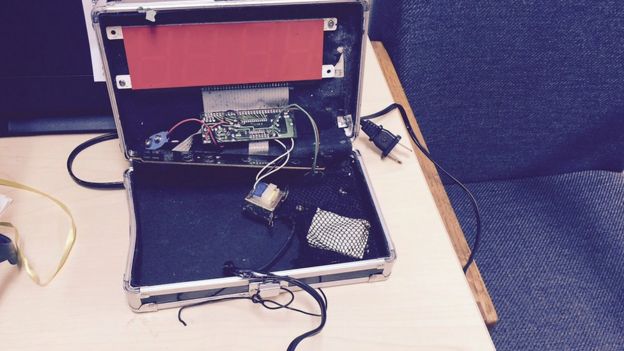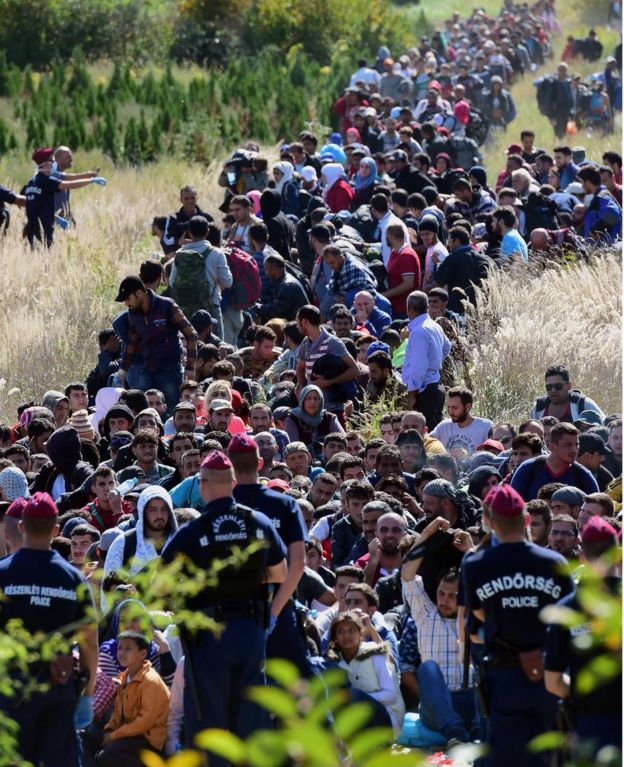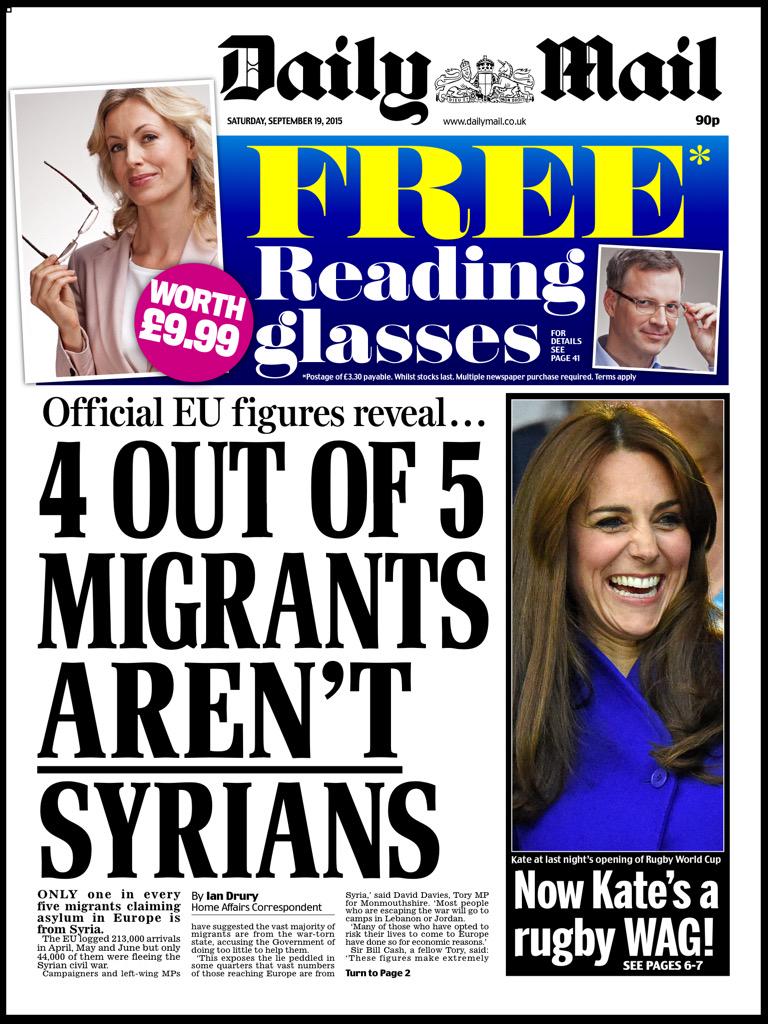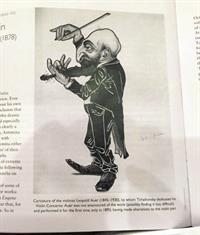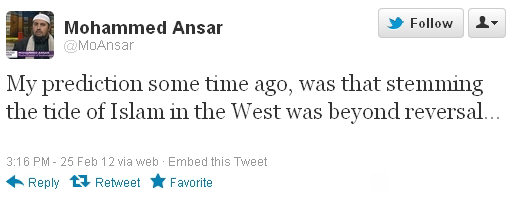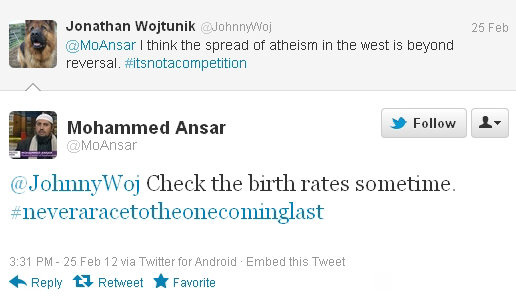Sarah Montague interviewed Ta-Nehisi Coates on Today (08:50) concerning a letter he wrote to his son preparing him for life in ‘racist’ America, a land in which the Blacks are still oppressed. Never mind having a black President and all that. A rare form of oppression one might think. The letter came out in July and Coates has a long history of such racist whimpering. You may suspect that the letter to his son was nothing more than a device to catch the media’s attention in a way that a race baiter talking up the usual anti-white rhetoric wouldn’t…wrap it up in a sentimental coating and it becomes a heartfelt plea, a meaningful spotlight on a cruel and racist America.
Montague played along and offered up Trayvon Martin and Michael Brown as evidence of America’s white racism…never mind Martin was shot as he tried to smash the head of an Hispanic American into the ground and Brown was a thug and thief who attacked a police officer, tried to take his gun, punched him in the face and charged at him when told to stop….that’s why he was shot, not because he was black, because he was a dangerous, dumb-ass thug.
Then we get to the real meat of the interview, one suspects what Montague really wanted to address all along….Republican presidential candidate Ben Carson stating that a Muslim should not be President of the USA.
Coates denounced him as a bigot. Montague said nothing to contradict that view. In fact she didn’t put into context what Carson said and why he said it thus deliberately leaving it open to interpretation that he was a bigot….an ‘Islamophobe’.
So now we know…America is racist, black men get gunned down by police for absolutely no reason whatsoever and blacks are put in jail just for the crime of being black [If you believe frothing mouthed liberal rants such as this where mass murderers and rapists are being treated ‘unfairly’ by racist America….”The imagery haunts, and the stench of slavery and racial oppression lingers through the 13 minutes of footage.’] and Republicans are Islamophobes.
Jon Sopel joins in the condemnation of Carson in this blatant piece of opinionated tripe he wrote for the BBC...Carson leaps over the line with his Islam comment. This is not reporting but a one-sided piece of invective against Carson giving him no say to defend himself and which libels and labels him as a bigot and racist.
First though we have the usual BBC anti-Trump rhetoric which Sopel uses as a warm-up for his attack on Carson….
The slight trip across the line came from the aforementioned Mr Trump who failed to correct a questioner who alleged that Obama wasn’t American, wasn’t a Christian – but was a Muslim. Mr Trump, under fire, countered that it wasn’t up to him – he had no moral responsibility to stand up for the president. OK, but you can correct a downright lie. No?
That of course is purely subjective and not in the realm of a BBC ‘journalist’ to demand…Sopel calls the comment a ‘lie’ but what if it is a truly held belief or just a mistake? To label it a ‘lie’ is a contrived way to put the person who made the comment in a bad light and Trump after. Trump had no obligation to ‘correct’ him at all, and Obama was born a Muslim, his father was Muslim, therefore he may well be Muslim technically…in fact Muslims will tell you everyone is ‘Muslim’…you just don’t accept it…that is why they, especially the fundamentalists, insist on calling converts ‘reverts’…they revert back to their ‘natural’ religion….Jesus was a Muslim, as was Moses and Abraham..oy vey!
Then Sopel gets to Carson and mounts his high-horse…..here sententiously, pompously, laying it out for us…
If you haven’t heard it I am going to reprint here the full exchange with Chuck Todd the interviewer, just so you can see that the comments aren’t being taken out of context.
TODD: Should a president’s faith matter? Should it matter to voters?
CARSON: I guess it depends on what that faith is. If it’s inconsistent with the values and principles of America. And of course, if it fits within the realm of America and consistent with the constitution, no problem.
TODD: So do you believe that Islam is consistent with the constitution?
CARSON: No, I do not. I would not advocate that we put a Muslim in charge of this nation. I absolutely would not agree with that.
Sopel tries to set it up to suggest the context proves Carson is a bigot…hmmm…well reading it doesn’t seem to support that prejudiced and bigoted conclusion from Sopel who exhibits all the usual signs of being the BBC’s useful idiot in America ala Mark Mardell….it can’t be long before ISIL murders a group of people in America and Sopel comes up with the line that ‘This is a senseless tragedy….nothing to do with Islam’.
Reading what Carson said seems more to support the idea that he said this because his comments were based upon what the religion teaches, events from around the world such as in the war zone of the Middle East and events in Muslim majority countries in which Islam rules supreme guided by the word of God not man.
Is Islam compatible with western, democratic, secular, liberal societies that value free speech, liberty, tolerance and humanity? Most people would probably say not. I know of no-one who thinks Islam is a good and humane religion…the evidence is overwhelming that it seems to promote violence, intolerance and apartheid in societies around the world in a way that no other religion even comes close to…only in Islam does a holy book incite its followers to kill the unbelievers, to kill them until Islam rules supreme…nowhere in the Bible will you find Jesus telling followers of Christ to kill the unbelievers….
Quran (8:39) – “Make war on them until idolatory shall cease and God’s religion shall reign supreme.’
Sopel emotes on behalf of Muslims in America…
How is it going to feel to have a serious political figure, someone who aspires to lead this nation, essentially saying being Muslim is un-American?
These people who day in, day out serve their communities, support their families, enrich the lives of fellow citizens and make America the successful melting pot that it is. Kids who recite the pledge of allegiance in the morning at their schools and go to their mosque or church or synagogue in the evening at the weekend? Isn’t that what America is all about? Which bit of “one Nation under God, indivisible, with liberty and justice for all” doesn’t Dr Carson get?
He then says this:
Indeed, how different are Dr Carson’s comments from previous generations of bigots, racists and apologists who would say there could never be an African-American as president, or Catholic, or any other minority you could single out.
So Carson is a racist, a bigot, an apologist for racists and bigots……but his comment was based not upon a physical characteristic but upon an ideology, one that clearly states what its tenets are….for everyone to read….and you can see those tenets being put into action around the world…and come to the conclusion that Carson did….are you a racist and a bigot if you oppose Communism or Fascism? No, because they are ideologies not a skin colour. Sopel doesn’t seem able to tell the difference.
Sopel quotes from the Constitution...
Article 6 is just about as explicit a statement as you’re ever going to find: no religious test shall ever be required as a qualification to any office or public trust under the United States.
That though isn’t the issue…the issue is that it is Islam doesn’t recognise the ‘sovereignty of man’ and will not recognise the very same US Constitution that Sopel quotes from……which makes this command from the Constitution somewhat incompatible with a Muslim being President…
All legislative Powers herein granted shall be vested in a Congress of the United States, which shall consist of a Senate and House of Representatives.
As does this…..
Before he enter on the Execution of his Office, he shall take the following Oath or Affirmation:—”I do solemnly swear (or affirm) that I will faithfully execute the Office of President of the United States, and will to the best of my Ability, preserve, protect and defend the Constitution of the United States.”
How can a Muslim defend the Constitution when his religious principles oppose that very notion, that concept of man’s sovereignty not God’s, the very heart of the US Constitution? Federal Law is the supreme law of the land, Sharia law therefore would be incompatible, it cannot also reign supreme.
Sopel’s failure to explain Muslim beliefs about politics and Sharia law whilst quick to quote Article 6 shows how biased his ‘reporting’ is on this issue. Article 6 may not actually mean what he takes it to meant…that anyone, of any religion can be in public office….it is apparently taken as meaning no-one can be made to adopt a religion or belief…a slight but significant difference in meaning….it may not mean anyone is free to be President regardless of their ideology.
John F. Kennedy, a Catholic, in his Presidential campaign tackled a similar question….and his conclusions were…
If the time should ever come – and I do not concede any conflict to be remotely possible – when my office would require me to either violate my conscience or violate the national interest, then I would resign the office; and I hope any other conscientious public servant would do likewise.
It is apparently necessary for me to state once again—not what kind of church I believe in, for that should be important only to me—but what kind of America I believe in.
I believe in an America where the separation of church and state is absolute—where no Catholic prelate would tell the President (should he be Catholic) how to act, and no Protestant minister would tell his parishoners for whom to vote—where no church or church school is granted any public funds or political preference—and where no man is denied public office merely because his religion differs from the President who might appoint him or the people who might elect him.
I believe in an America that is officially neither Catholic, Protestant nor Jewish—where no public official either requests or accepts instructions on public policy from the Pope, the National Council of Churches or any other ecclesiastical source—where no religious body seeks to impose its will directly or indirectly upon the general populace or the public acts of its officials—and where religious liberty is so indivisible that an act against one church is treated as an act against all.
I would not look with favor upon a President working to subvert the first amendment’s guarantees of religious liberty.
I want a Chief Executive whose public acts are responsible to all groups and obligated to none—who can attend any ceremony, service or dinner his office may appropriately require of him—and whose fulfillment of his Presidential oath is not limited or conditioned by any religious oath, ritual or obligation.
I don’t believe any Muslim could make the same statements about the separation of religion and state, the guarantee of religious freedom, a state where religious law plays no part, where no faith school gets public funding and that he should have to resign if his faith and conscience should act against the national interest.
Sopel ends with this condescending and pompously arrogant sneer…
I was in California for the second Republican debate last week, and to be honest I thought Dr Ben Carson was sailing in a bit of an empty vessel. I couldn’t remember anything noteworthy that he had said. Well, we now see that there is something in that vessel, aside from him. And it is not very pleasant. It will be interesting to watch how much pressure there’ll be for him to walk the plank, or chart a very different course.
So Carson is also ‘not very pleasant’ and should be made to resign or be forced to change his views.
All in all a typically prejudiced, ill-informed and bigoted piece from the BBC that sets out to label anyone who criticies Islam as a racist and a fascist, someone whose views are ‘unacceptable’ and therefore can be maligned and slandered by the BBC…..and either silenced or forced out of their job.
Regardless of whether a Muslim could actually be the President and ‘protect and defend the Constitution’ Sopel has produced an incredibly biased piece aimed at Carson. Sopel and his crew are the closest we have to the medieval thought-police of the Inquisition, the Gestapo in the 30’s or the KGB….this is a media show trial and just as in any show trial the defendant has no right of reply and his guilt is pre-ordained. Carson was hung out to dry by Sopel for the crime of being truthful.


 Amneh Jafari
Amneh Jafari 